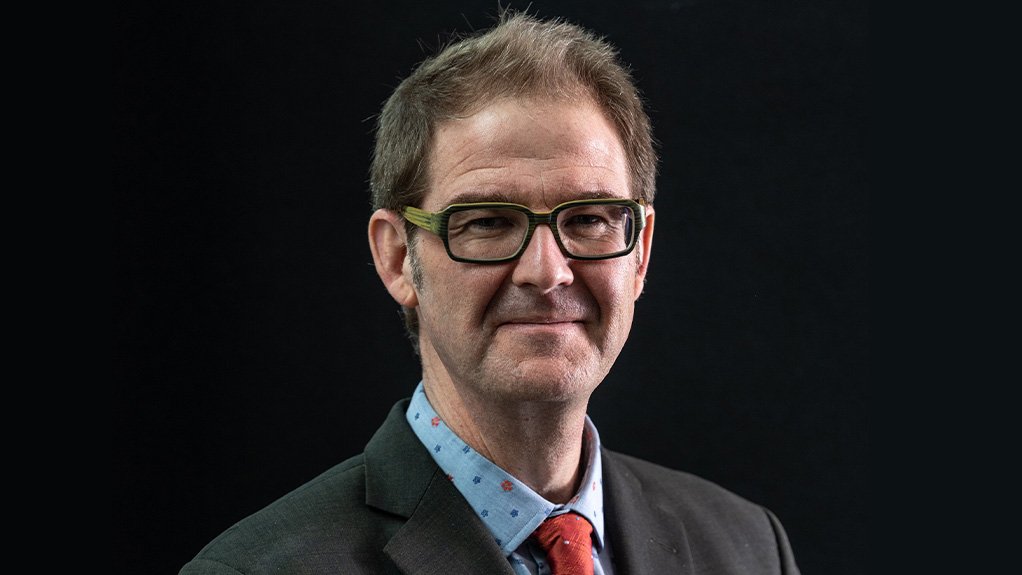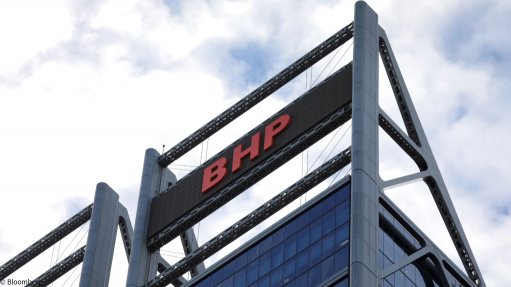Incorporation, decriminalisation of ASM sought


ALAN MARTIN LBMA is seeking ways of decriminalising and working artisanal and small-scale mining into the formal and legal network of gold mining and refining
With about 20% of yearly global gold production being produced by artisanal and small-scale mining (ASM) practices, an urgent need to revise existing ASM frameworks has arisen, alongside a need to shift the negative perceptions surrounding it, London Bullion Market Association (LBMA) responsible sourcing head Alan Martin tells Engineering News & Mining Weekly.
To this end, the LBMA has proposed various steps to encourage the inclusion of gold produced by ASM into mainstream supply.
To give refiners a greater sense of comfort in using ASM-generated gold, the association is collaborating with its member refiners to create a sourcing framework that mitigates the possibility of having material bypass the necessary due diligence framework.
The LBMA conducted a feasibility study in 2022, alongside Phuzumoya Consulting director Gregory Mthembu-Salter and researcher Dr Thomas Salter, outlining the obstacles facing the ASM sector, which include logistical challenges in terms of transporting mined material from rural areas to cities, which can be costly.
Once the feasibility study was completed, the LBMA proceeded to identify countries, such as Ghana and Tanzania, that have started implementing pro-ASM policies.
The association is conducting country-level assessments of these countries by analysing the strengths, weaknesses and opportunities of their policies, and assessing whether they can be replicated in other gold-producing countries in which there is an ASM dynamic.
The LBMA is also assessing whether intermediate refiners are available to aggregate ASM material into volumes large enough to be of interest to larger-scale refiners – an effort, which Martin says, can make ASM more economically viable.
“If we start to think in terms of progressivity, where you have a baseline minimum of acceptable due diligence, you begin to encourage ASM miners and suppliers to adhere to those standards, thereby incrementally lifting the standards over time,” he contends.
The LBMA hopes to complete its framework by the end of this year.
Challenges
One of the big challenges the LBMA faces as it drafts its ASM sourcing framework, is to publicly reimagine the ASM sector “beyond the complex and dysfunctional Congolese model”, where conflict financing and corruption have defined industry’s perceptions and avoidance of the sector.
These views are fueled by issues involving human rights infringements, such as child labour, and conflict financing models, as well as environmental and safety risks, which are considered zero tolerance risks, according to the Organisation for Economic Cooperation and Development’s due diligence framework.
As a result, most African governments criminalise ASM, with Martin noting that ASM regulations are often enforcement oriented, as opposed to focusing on formalising and encouraging responsible mining practices, thereby disregarding the economic benefits of the sector.
This means that most governments either overtax or have unrealistic expectations for ASM miners to show due diligence, thus causing refineries to bypass the direct sourcing of ASM gold to avoid reputational damage.
“Most African countries do not have a workable, realistic framework through which the sector is managed and formalised. Instead of engaging with the sector and trying to improve practices and standards, the ASM sector is largely left in a lawless state.”
He argues that more engagement by governments and a subsequent formalising of the ASM industry can help to eliminate the health and safety risks associated with ASM, such as collapses in mine shafts or pits.
Additional Help
Martin states that large-scale gold miners in Africa can also play a role in encouraging pro-ASM policies, owing to the political influence held by some of the larger mining houses, as they contribute significantly to the government fiscus through taxes and royalties.
This, he says, means that larger mining companies have a greater opportunity to engage with governments, on behalf of artisanal miners, to encourage formalisation of the ASM sector and increase support for the related industry.
Further, mining companies can also assist by providing technical help for such miners by, for example, building stronger mine walls to avoid collapses, thereby ensuring greater safety.
They can also buy ASM material and conduct the first assaying thereof, which could ensure traceability of supply and due diligence on the material, thereby enabling ASM to contribute to an economy’s tax base.
Such assistance, Martin argues, can enable mining companies to mitigate governance challenges that artisanal mining concessions may pose, which also helps them to avoid sourcing issues.
“Industrial miners are a critical element of this programme that the we are embarking upon,” notes Martin.
Martin says formalising ASM “is not going to happen overnight”, but that there is a concerted attempt to change the status quo.
“Where the industry is seeing ASM-generated material almost bypass the legal system, we want to incrementally see that being embraced and brought into the legal system,” Martin concludes.
Comments
Press Office
Announcements
What's On
Subscribe to improve your user experience...
Option 1 (equivalent of R125 a month):
Receive a weekly copy of Creamer Media's Engineering News & Mining Weekly magazine
(print copy for those in South Africa and e-magazine for those outside of South Africa)
Receive daily email newsletters
Access to full search results
Access archive of magazine back copies
Access to Projects in Progress
Access to ONE Research Report of your choice in PDF format
Option 2 (equivalent of R375 a month):
All benefits from Option 1
PLUS
Access to Creamer Media's Research Channel Africa for ALL Research Reports, in PDF format, on various industrial and mining sectors
including Electricity; Water; Energy Transition; Hydrogen; Roads, Rail and Ports; Coal; Gold; Platinum; Battery Metals; etc.
Already a subscriber?
Forgotten your password?
Receive weekly copy of Creamer Media's Engineering News & Mining Weekly magazine (print copy for those in South Africa and e-magazine for those outside of South Africa)
➕
Recieve daily email newsletters
➕
Access to full search results
➕
Access archive of magazine back copies
➕
Access to Projects in Progress
➕
Access to ONE Research Report of your choice in PDF format
RESEARCH CHANNEL AFRICA
R4500 (equivalent of R375 a month)
SUBSCRIBEAll benefits from Option 1
➕
Access to Creamer Media's Research Channel Africa for ALL Research Reports on various industrial and mining sectors, in PDF format, including on:
Electricity
➕
Water
➕
Energy Transition
➕
Hydrogen
➕
Roads, Rail and Ports
➕
Coal
➕
Gold
➕
Platinum
➕
Battery Metals
➕
etc.
Receive all benefits from Option 1 or Option 2 delivered to numerous people at your company
➕
Multiple User names and Passwords for simultaneous log-ins
➕
Intranet integration access to all in your organisation



















